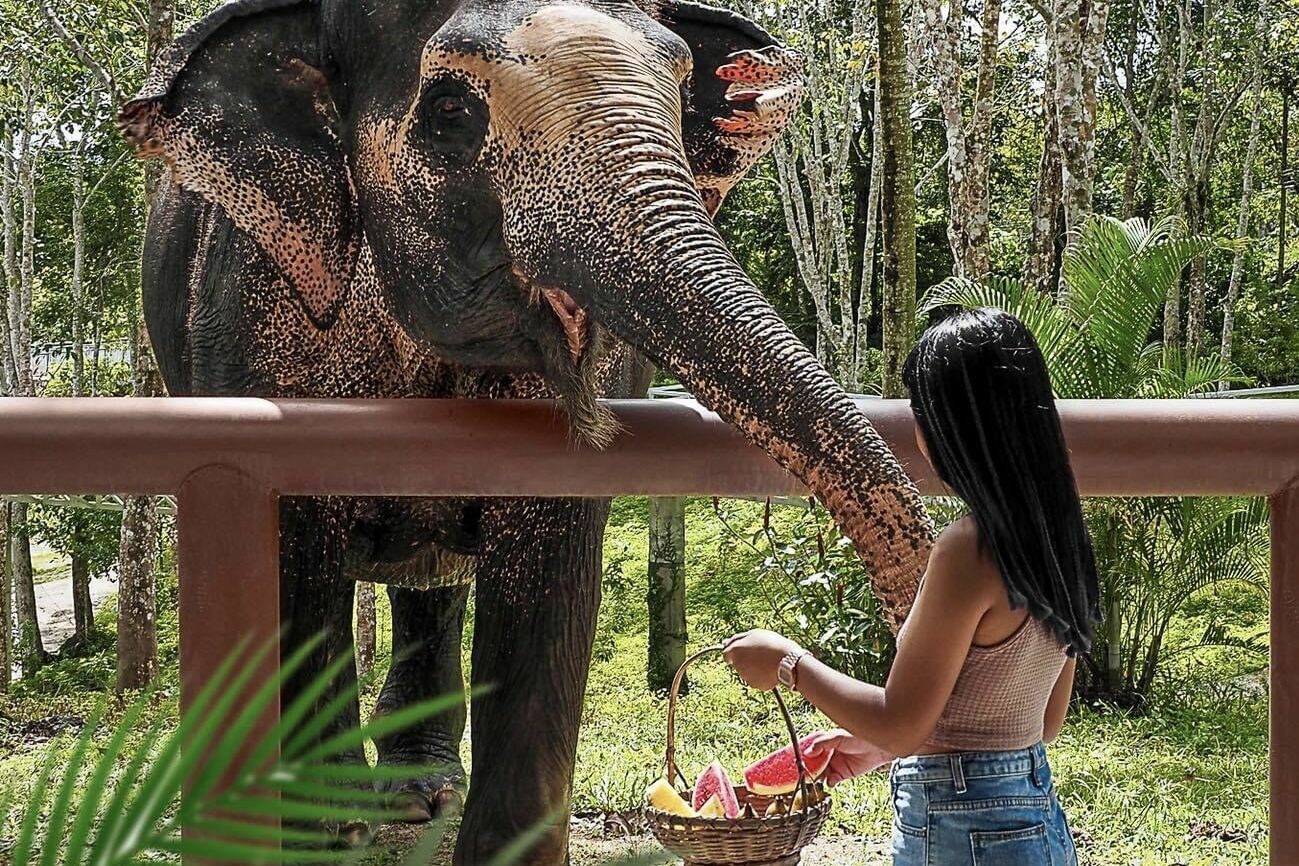Elephant-friendly future possible: Thailand shifts from exploitative tourism to conservation

Elephants: fading into history or stepping into a brighter future? In Thailand, these enormous and intelligent creatures have woven themselves into the very fabric of the country’s heritage and traditional beliefs.
Over the centuries, they’ve become emblematic of Thailand thanks to their substantial contributions to warfare, transport, and heavy labour, all of which are largely credited to their immense strength and intelligence.
A historic shift in the elephants’ role occurred in 1989 as the government enforced a logging ban due to growing deforestation concerns. This decision led to elephants being redirected from forests to the tourism and entertainment industry, serving as entertainers for thousands.
According to the latest research in 2021 by the non-profit organisation, World Animal Protection (WAP), approximately 4,000 elephants live in captivity inside traditional and commercialised elephant camps in Thailand. A rising trend in elephant breeding has led to an increase in this number.
Elephants undoubtedly display their remarkable capabilities as a beast of burden, but it’s crucial to remember the other side of captivity. A large majority of elephants held in these camps suffer from both physical and mental distress due to exploitative entertainment activities, according to WAP’s findings.
Hatai Limprayoonyong, wildlife campaign manager for WAP, Thailand, said…
“In an effort to bring consumer attention to the distressing state of affairs involving captive elephants. Just like humans, they’re born to be part of a social society. They have their society as well. But to take one elephant and train them in camps, they need to be separated from their herd.”
The financial hardships faced by many elephant camps further exacerbate the problem, leading to inadequate care due to the intermittent absence of tourists. Limprayoonyong, highlighting the need to respect elephants and refrain from using them merely for human amusement, said…
“The whole cycle treats elephants like a product but actually, they are a part of wildlife.”
In an attempt to mitigate these issues, WAP advocates transitioning towards more elephant-friendly venues where the elephants can live in their natural state. Hatai cautioned about the inherent dangers to both tourists and elephants while performing activities like riding and bathing, as misreading their signs could lead to perilous situations.
In 2017, WAP, supported by practical evidence, helped approximately 15 local elephant camps make a transition to become elephant-friendly venues. Successful cases include Chang Chill in Chiang Mai, one such venue that restructured its infrastructural standards within six months with WAP’s financial and guidance support. Now, visitors can only observe elephants from a safe distance, and activities creating stress for elephants, such as riding, bathing, and direct interaction, have been prohibited for the well-being of all parties involved.
In an attempt to address the persistent problem of legal loopholes, WAP drafted a bill in early 2022, with backing from numerous non-governmental organisations (NGOs), government staffers, and others. The goal was to introduce legislation prohibiting the capture of elephants, the use of inhumane training methods, and commercial breeding. However, due to the dissolution of Parliament earlier this year, WAP’s mission has now shifted to collaborating with the new government to advocate for the enactment of the bill.
According to current Thai law, elephants are categorised as either wild or domesticated. The latter is subject to the Beast of Burden Act, which enables private ownership and creates loopholes that expose captive elephants to domestic violence.
One glaring loophole is the exportation of elephants under various premises, from educational purposes to diplomatic gifts fostering bilateral relations. This practice exposes captive elephants to exploitation from the initial sourcing stage to the actual exportation process, according to Limprayoonyong.
In response to these problems, WAP aims to put an end to commercial elephant breeding, reduce the captive elephant population and improve the welfare conditions of captive elephants across various venues. Limprayoonyong added…
“We believe elephants belong in the wild. We want all the elephants that are currently being held captive to be the last generation that is so that the captivity cycle ends.”
Latest Thailand News
Follow The Thaiger on Google News:


























